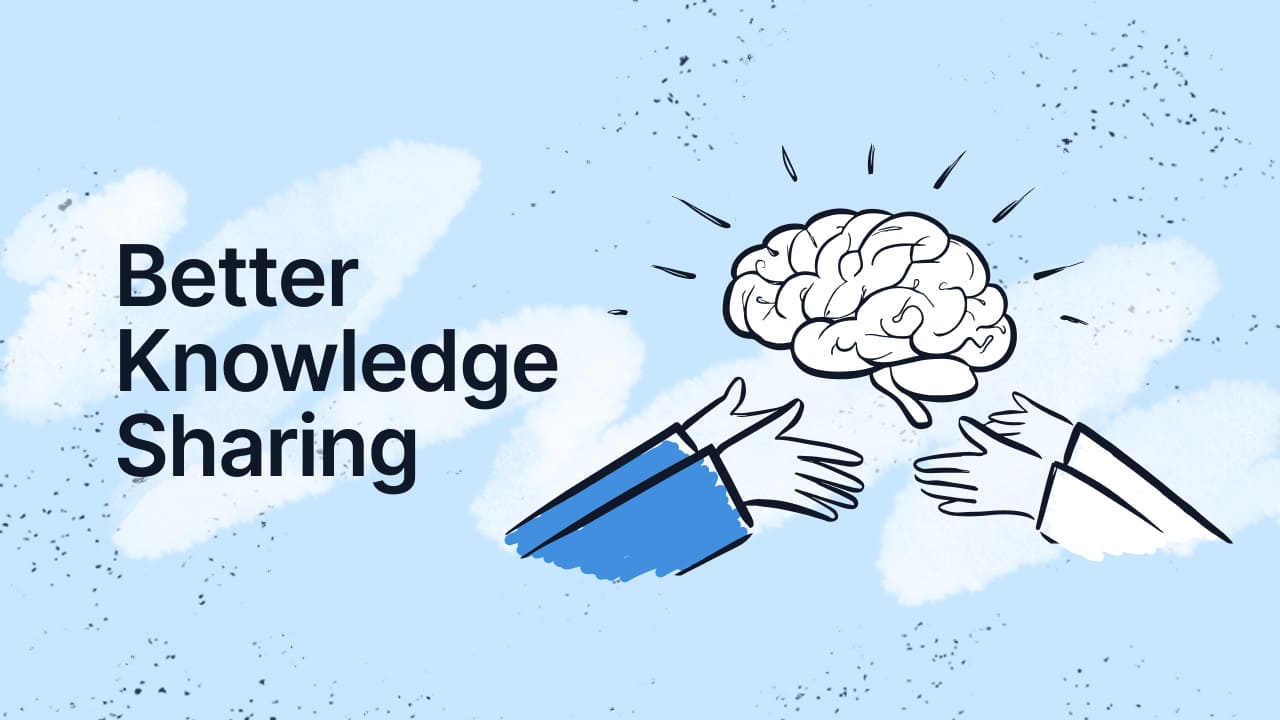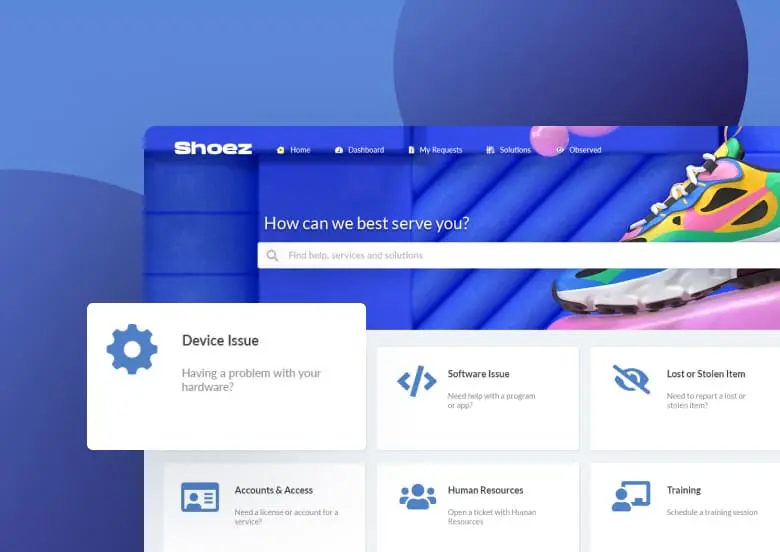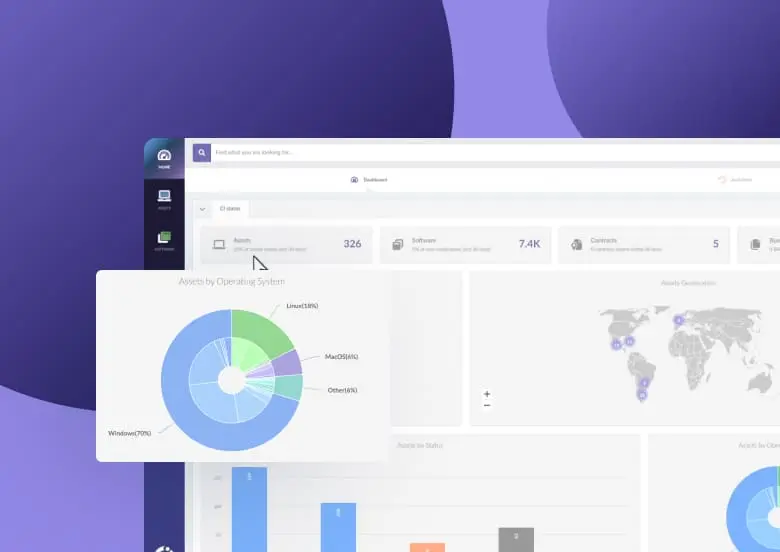Managing knowledge within your organization can make or break your success in a world where information is power. While the benefits of Knowledge Management might seem abstract at first glance, their impact is anything but.
KM is the backbone of modern, efficient organizations, from improving decision-making to fostering innovation. It's about more than just storing data—it's about ensuring your entire team has the knowledge they need to excel. Let’s explore how Knowledge Management can be a game-changer for your organization.
What is Knowledge Management?
Knowledge Management is the process of capturing, organizing, sharing, and effectively using knowledge within an organization. It’s not just about storing information—KM involves creating a system where valuable insights, experiences, and data can be easily accessed by anyone who needs them.
KM could take many forms: documented procedures, lessons learned from past projects, or expertise from experienced team members. It ensures that critical knowledge is available to support decision-making and drive organizational success.

What are the benefits of Knowledge Management?
Knowledge will always flow through your organization, whether you do something about it or not. However, without a structured approach, that flow can be disorganized, inconsistent, and inefficient. To leverage Knowledge Management benefits you need a conscious effort to harness, organize, and direct that flow in a way that benefits everyone.
It ensures that valuable insights and information are not only captured but also easily accessible, leading to better decision-making, innovation, and overall organizational efficiency.
Let’s break down some of the key advantages of KM and how they contribute to a more effective and innovative workplace.
Improved decision-making
Good decisions rely on accurate information and timely access to it. This is where Knowledge Management plays a crucial role. Centralizing information in a well-organized repository is a Knowledge Management practice that helps decision-makers daily. Instead of fishing for data across multiple platforms or digging through outdated documents, they can make informed choices based on up-to-date, reliable knowledge that's readily accessible.
Imagine a project manager leading a complex initiative with multiple moving parts. Without a centralized knowledge base, tracking previous decisions, understanding project history, or accessing expert advice becomes a significant challenge.
A robust KM system changes this by offering a single source of truth where everything is documented. The manager can quickly pull up relevant data, compare it with current project needs, and make decisions that align with both short-term objectives and long-term goals.
Knowledge Management turns guesswork into informed action, enabling faster, more accurate decision-making that can significantly impact an organization's success.

Enhanced organizational learning and innovation
Continuing with more benefits of Knowledge Management, let's explore learning. An organization thrives on continuous improvement, and KM is the backbone of this process. By capturing and sharing knowledge across the organization, KM creates a culture where learning is a constant, not just an occasional training session. Employees are encouraged to contribute their expertise and insights, which, when shared, fuel collective growth and innovation.
For instance, in an R&D department in a tech company, exchanging ideas and past experiences can spark new innovations. A well-implemented KM system ensures that everyone, from seasoned experts to new hires, has access to a wealth of knowledge. This access breaks down silos and encourages cross-departmental collaboration, often leading to breakthrough innovations that might not have surfaced in a more isolated environment.
Take 3M and the well-known story behind their Post-it Note, now a staple in offices worldwide. We can say that the Post-it was actually the result of the company's culture of innovation and knowledge-sharing. Thanks to an environment where employees could easily share ideas and past project learnings, 3M turned what was initially considered a failed adhesive experiment into a successful product.
In short, KM doesn't just store knowledge—it mobilizes it. When employees can tap into a collective reservoir of information, they’re more likely to innovate and drive the organization forward in ways that wouldn’t be possible in a knowledge-poor environment.

Consistency and reliability of knowledge
Consistency in knowledge sharing is vital to maintaining quality and reliability in any organization. Knowledge management provides a structured approach to capturing and disseminating information, ensuring that everyone is on the same page, regardless of department or location.
The healthcare industry is a good example of an area where consistency is critical. Medical professionals rely on accurate, up-to-date knowledge to make life-saving decisions. A structured KM system ensures that all staff members have access to the latest guidelines, treatment protocols, and patient records, reducing the risk of errors and ensuring high standards of care.
The same applies in finance, where misinformation can lead to costly mistakes. A well-maintained KM system prevents this by centralizing data and standardizing how knowledge is shared.
Consistency helps organizations avoid the pitfalls of fragmented information, after all, every employee needs to work with the same accurate data.
Structured KM practices are a way for organizations to prevent the spread of misinformation, reduce errors, and maintain high standards, especially for those industries where accuracy is non-negotiable.
Empowered and engaged employees
When employees have easy access to the knowledge they need, they feel more empowered to do their jobs effectively. This is yet another of the benefits of Knowledge Management. It breaks down barriers to information so that everyone in the organization can tap into the collective intelligence of the team.
This is very important for juniors or new employees. Let's say a junior analyst just joined a financial services firm. Without a strong KM system, they might feel lost, unsure where to find the information they need or whom to ask for help.
But with a well-organized knowledge repository, they can quickly get up to speed by accessing training materials, best practices, and even previous analyses. This empowers them to contribute more quickly and with greater confidence.
Employee Experience and engagement is closely tied to this empowerment. When employees feel they have the tools and information to excel in their roles, they’re more likely to be engaged and motivated. In organizations with strong KM practices, employees often report higher job satisfaction and a greater sense of ownership over their work.
Streamlined operations and increased efficiency
Efficient operations depend on streamlined workflows and the elimination of unnecessary redundancies. Knowledge Management plays a pivotal role in this by ensuring that the right information is available at the right time, reducing the chances of duplicated efforts or repeated mistakes.
Let's consider a customer support team, for example. Without a KM system, each representative might solve similar problems from scratch, wasting time and providing inconsistent service. However, an effective KM system documents common issues and their solutions in a shared repository. This allows team members to quickly reference past solutions, providing faster, more consistent service to customers.
KM systems can lead to measurable increases in efficiency. In competitive industries, these improvements can make a substantial difference in overall performance and service delivery.
Self-service and better experience for customers
While we've focused on the internal benefits of Knowledge Management, it's important to recognize the value it brings to your customers as well. High-quality KM enhances self-service capabilities, empowering customers to find answers on their own through your knowledge base or other self-service portals. When customers have access to well-organized, accurate, and easy-to-understand information, they're more likely to resolve issues without needing to contact support.
This not only leads to a better customer experience but can also be measured through a reduction in support tickets. For instance, if customers frequently solve their problems after accessing a knowledge base article, you'll see fewer tickets being opened, freeing up your support team to handle more complex inquiries. In this way, effective KM not only boosts internal efficiency but also improves customer satisfaction and reduces support costs.
Competitive advantage
We know that staying ahead of the competition requires more than just good products or services. It demands the ability to leverage knowledge effectively, which is where Knowledge Management becomes a strategic asset.
Organizations that harness KM are better equipped to innovate, adapt to market changes, and make informed decisions quickly.
For example, a manufacturing company can use KM to optimize its supply chain. Sharing knowledge about suppliers, logistics, and production processes across the organization can reduce costs, improve efficiency, and help the company respond more quickly to market demands.
The long-term benefits of maintaining a KM system are clear. It not only enhances current operations but also positions organizations for sustained success. Knowledge Management can help organizations maintain a competitive edge, adapt to new challenges, and seize opportunities that less agile competitors might miss.
Of course, you must continually build and refine your knowledge base; we'll cover more on Knowledge Management practices in the next section.

Guidelines for Knowledge Management
After understanding the benefits of effective KM, you might wonder what the best approach is for implementing it within your organization.
This is where ITIL comes into play. ITIL guidelines, particularly those in ITIL 4, provide a well-established framework for managing knowledge in a way that aligns with broader Service Management goals.
Following ITIL's structured approach, you can ensure that your KM processes capture and store information efficiently and contribute to overall service excellence.
Here are a few key tips to get you started:
- Capture knowledge continuously: Make it a practice to capture knowledge at every stage of a project or service lifecycle. Encourage your team to document lessons learned, best practices, and useful insights as they arise rather than waiting until the end of a project. This ensures that valuable information is always up-to-date and ready to be shared.
- Foster a culture of knowledge sharing: Encourage open communication and collaboration within your organization. Create a culture where employees feel empowered to share their knowledge and expertise with others. Implement regular knowledge-sharing sessions or use collaboration tools that make it easy to exchange information.
- Keep your Knowledge Base relevant and accessible: Regularly review and update your Knowledge Management systems to ensure that the information remains relevant and useful. Organize the knowledge base in a way that makes it easy to navigate, so employees can quickly find what they need when they need it. This improves efficiency and ensures that everyone is working with the most current and accurate information.
Apart from ITIL, there are other ways to support knowledge. For example, the set of best practices presented in the Knowledge-Centered Service (KCS) framework.
Conclusion
Now you know the benefits of Knowledge Management. It’s not just a smart choice; it’s a strategic necessity. By centralizing information, fostering a learning culture, and empowering employees, KM systems pave the way for consistent growth, innovation, and a lasting competitive edge.
The long-term benefits, from improved decision-making to enhanced operational efficiency, make it clear that KM is an investment in your organization’s future. Those who leverage their knowledge assets will be the ones leading the way.
















